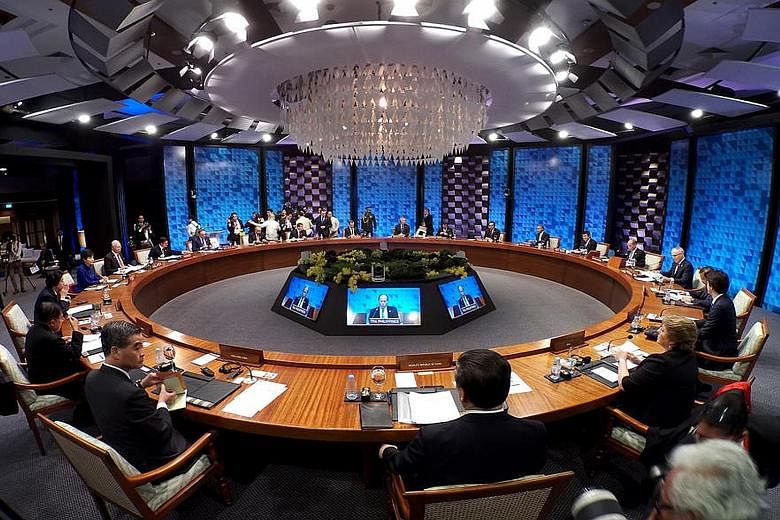Pacific Rim leaders concluded yesterday a two-day summit in Manila with a declaration to ramp up the fight against terrorists, push for an ambitious climate change pact, and stimulate the world economy by lowering trade barriers and focusing on small enterprises.
In a nine-page statement, the 21 leaders of the Asia-Pacific Economic Cooperation (Apec) forum strongly condemned recent attacks by militants in Paris, Beirut and Egypt.
"Under the shadow cast by the terrorist attacks in Paris, Beirut and against a Russian aircraft over the Sinai, and elsewhere, we strongly condemn all acts, methods, and practices of terrorism in all their forms and manifestations," they said.
On Nov 13, terrorists launched simultaneous attacks in and around Paris that left at least 129 dead.
A day before, suicide bombings in Beirut killed 43 people and wounded 200, the worst terrorist attack in Lebanon in years.
Before these attacks, a Russian passenger jet crashed over the Sinai desert, brought down by a bomb estimated to contain 1kg of explosives, killing 224 people.
"We will not allow terrorism to threaten the fundamental values that underpin our free and open economies," the Apec leaders said, as they pushed for growth and prosperity as "among the most powerful tools to address the root causes of terrorism and radicalisation".
They pushed for initiatives to plug terrorist financing and restrict cross-border movements of terrorists, through the "Apec consolidated counter-terrorism and secure trade strategy".
The statement on terrorism was a rare departure from convention for Apec, which normally focuses on trade and business issues.
Economic issues did take up the bulk of discussions during the summit and in meetings held this week.
Delegates took note of weaknesses in the global economy, and discussed ways to deal with these by lowering tariffs, easing protectionist policies on trade in services, and pushing for structural reforms in a region encompassing three billion people.
In their statement, the Apec leaders pressed for the "eventual realisation" of the China-backed Free Trade Area of the Asia-Pacific, and "pathways" to it, including the US-initiated Trans-Pacific Partnership, and the Regional Comprehensive Economic Partnership.
Addressing climate change, the leaders backed the conclusion of a framework on reducing harmful carbon emissions during the two-week United Nations summit set to begin on Nov 30 in Paris.
They reaffirmed their goals to reduce "aggregate energy intensity by 45 per cent by 2035" and double the share of renewable energy by 2030.
Behind closed doors, disputes over the South China Sea loomed large in discussions the US held with its allies. As a result, the Philippines managed to seal arms deals and security arrangements to beef up its military, one of the region's weakest.
US President Barack Obama is expected to again raise the South China Sea issue when he attends the East Asia Summit in Malaysia.

